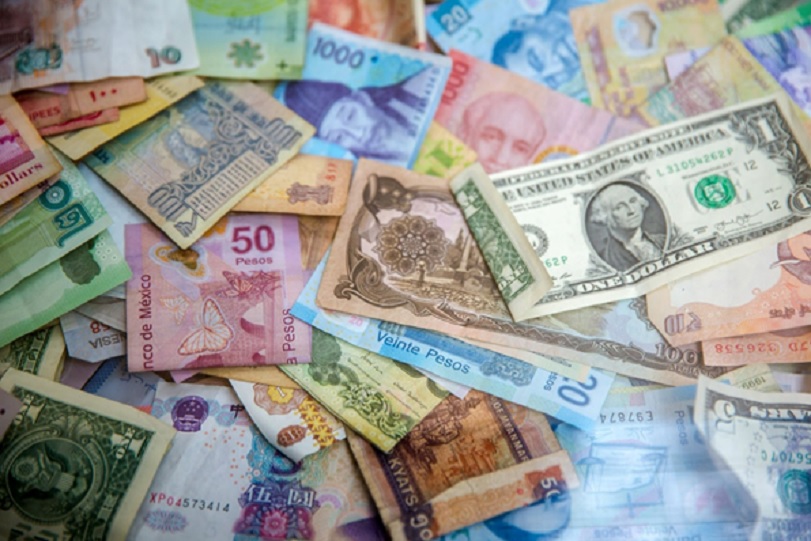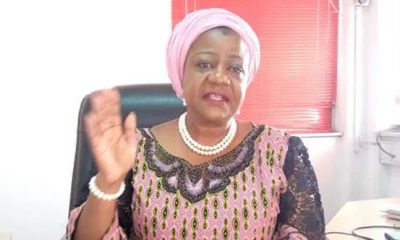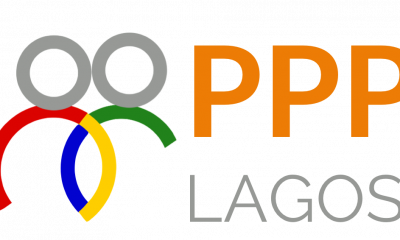Economy
What is the Strongest Currency in the World?

Explore the intricate factors shaping the world’s strongest currencies. Dive into economic indicators, historical shifts, and the double-edged sword of monetary might.
In the bustling world of finance, currency is king. But have you ever wondered which of these monetary sovereigns reigns supreme? To determine the world’s strongest currency, one must wade through a myriad of economic, political, and speculative factors. This article delves into the very heart of this topic, untangling the intricate web that defines a currency’s strength. Find out if is the euro expected to rise against the dollar.
The Elusive Nature of ‘Strength’
To begin, it’s crucial to discern between a currency’s value and its strength. A high value does not automatically denote strength. Consider, for example, the Zimbabwean dollar in the late 2000s. Though you might have held a trillion-dollar note, its purchasing power was close to nil.
Hence, our true measure lies in purchasing power parity (PPP) – a metric that considers the relative value of currencies based on the cost of goods and services they can purchase.
The Building Blocks of Currency Strength
The power of a currency is not determined in isolation. It’s a harmonious dance of various elements that dictate its potency on the global stage:
- Economic Indicators: Economic health is a predominant indicator. The GDP growth rate is a reflection of a nation’s economic activities. Healthy employment rates indicate a bustling economy where people are engaged productively. Interest rates, set by central banks, influence foreign investment and inflation. A low and stable inflation rate preserves the purchasing power of a currency, making it more attractive.
- Political Stability: Beyond economics, the political backdrop plays a crucial role. A country with stable governance, devoid of corruption and frequent political tumults, instills confidence among foreign investors. Stable policies also ensure that businesses can operate without fear of erratic regulatory changes.
- Market Speculation: The forex market, the largest financial market globally, operates round the clock. Traders, relying on economic forecasts, geopolitical scenarios, and other factors, make bets that influence currency values. In an age of instant communication, news (or even rumors) can lead to significant swings.
- Supply and Demand Dynamics: At its core, a currency’s value depends on its demand. Countries with robust exports, especially those in high demand globally, often see their currency values rising. A consistent positive trade balance signals a healthy economy, boosting a currency’s strength.
- Foreign Investment: When a nation attracts foreign capital, whether in its stock market, infrastructure, or other sectors, there’s an inherent demand for its currency. This influx of foreign capital bolsters the currency’s value.
- Central Bank Actions: Central banks wield enormous power over a country’s monetary health. Their interventions, either by tweaking interest rates or by direct market operations, can steer a currency’s trajectory. Furthermore, being designated as a global reserve currency, like the US dollar or the Euro, is a testimony to a currency’s strength.
The Heavyweights of Currency World
When we talk about the titans in the currency realm, several names stand tall, each bolstered by its unique set of economic strengths and geopolitical standings:
- The Kuwaiti Dinar: Topping the list is this Middle Eastern powerhouse. Kuwait’s vast oil reserves, coupled with strategic exports and a small, concentrated population, have granted the dinar unparalleled purchasing power. Its economy, intricately tied to hydrocarbon industries, has shielded it from excessive fluctuations, making it a bastion of stability in the region.
- The Bahraini Dinar: Tiny in size but mighty in financial clout, Bahrain is a hub for banking and finance in the Middle East. This, combined with its efforts in diversifying its economy and maintaining stable governance, has kept the Bahraini dinar high on the list.
- The Omani Rial: Beyond its natural oil wealth, Oman’s advantageous position along key trade routes and its consistently neutral political stances in regional disputes have made its currency a beacon of resilience.
- The Swiss Franc: Nestled in the heart of Europe, Switzerland’s commitment to financial secrecy, a robust banking sector, and a tradition of political neutrality have allowed the Swiss Franc to be a sought-after safe-haven currency for investors worldwide.
- The Euro: As the unified voice of multiple European economies, the Euro’s strength is a testament to collaboration. It’s backed not only by the robust economies of countries like Germany and France but also by the collective fiscal and monetary policies of the European Central Bank.
A Journey Through Time
The annals of history are littered with tales of currencies that once held the world in their grip. The British pound sterling, for instance, echoed the vastness of the British Empire upon which “the sun never set.”
Its dominance waned post-World War II, making way for the US dollar, bolstered by the United States’ economic boom and the Bretton Woods Agreement. As geopolitical shifts continue and emerging markets rise, the narrative of dominant currencies remains an evolving tapestry of power, influence, and global strategy.
The Double-Edged Sword of Strength
A strong currency, while a mark of economic prowess, comes with its set of intricacies. The allure of heightened purchasing power means imported goods, from electronics to luxury items, become more affordable for citizens.
This often leads to increased consumption, better standards of living, and a positive image on the global stage, potentially attracting foreign investors looking for stable economies to invest in.
However, this strength isn’t without its pitfalls. For nations whose economies lean heavily on exports, a powerful currency can be a stumbling block. It makes their goods more expensive for foreign buyers, potentially leading to reduced demand and impacting industries reliant on overseas markets.
Moreover, tourism, a significant revenue source for many countries, can take a hit as tourists might favor destinations where their home currency stretches further.

Conclusion
The dynamics of currency strength serve as a riveting reflection of global economic trends, political maneuvers, and collective aspirations of nations. While certain currencies currently revel in their dominant positions, history and the inherent volatility of the global economy ensure that this hierarchy is fluid.
Tomorrow’s financial landscape might bear witness to new contenders or a resurgence of erstwhile powerhouses.
Navigating this ever-shifting terrain requires not just understanding the present indicators but also an appreciation for historical patterns and an anticipation of future trends. For nations, businesses, and individual investors, the world of currency isn’t just about numbers—it’s a strategic game of chess on the global board.
Economy
Naira Down Again at NAFEX, Trades N1,359/$1

By Adedapo Adesanya
The Naira further weakened against the Dollar in the Nigerian Autonomous Foreign Exchange Market (NAFEX) for the fourth straight session this week on Thursday, February 26.
At the official market yesterday, the Nigerian Naira lost N3.71 or 0.27 per cent to trade at N1,359.82/$1 compared with the previous session’s N1,356.11/$1.
In the same vein, the local currency depreciated against the Pound Sterling in the same market window on Thursday by N8.27 to close at N1,843.23/£1 versus Wednesday’s closing price of N1,834.96/£1, and against the Euro, it crashed by N8.30 to quote at N1,606.89/€1, in contrast to the midweek’s closing price of N1,598.59/€1.
But at the GTBank forex desk, the exchange rate of the Naira to the Dollar remained unchanged at N1,367/$1, and also at the parallel market, it maintained stability at N1,365/$1.
The continuation of the decline of the Nigerian currency is attributed to a surge in foreign payments that have outpaced the available Dollars in the FX market.
In a move to address the ongoing shortfall at the official window, the Central Bank of Nigeria (CBN) intervened by selling $100 million to banks and dealers on Tuesday.
However, the FX support failed to reverse the trend, though analysts see no cause for alarm, given that the authority recently mopped up foreign currency to achieve balance and it is still within the expected trading range of N1,350 and N1,450/$1.
As for the cryptocurrency market, major tokens posted losses over the last 24 hours as traders continued to de-risk alongside equities following Nvidia’s earnings-driven pullback, with Ripple (XRP) down by 2.7 per cent to $1.40, and Dogecoin (DOGE) down by 1.6 per cent to $0.0098.
Further, Litecoin (LTC) declined by 1.3 per cent to $55.87, Ethereum (ETH) slipped by 0.9 per cent to $2,036.89, Bitcoin (BTC) tumbled by 0.7 per cent to $67,708.21, Cardano (ADA) slumped by 0.6 per cent to $0.2924, and Solana (SOL) depreciated by 0.4 per cent to $87.22, while Binance Coin (BNB) gained 0.4 per cent to sell for $629.95, with the US Dollar Tether (USDT) and the US Dollar Coin (USDC) closing flat at $1.00 each.
Economy
Crude Oil Falls as Geopolitical Risk Around Iran Clouds Supply Outlook

By Adedapo Adesanya
Crude oil settled lower on Thursday as investors tracked developments in talks between the United States and Iran over the latter’s nuclear programme, weighing potential supply concerns if hostilities escalate.
Brent crude futures lost 10 cents or 0.14 per cent to close at $70.75 a barrel, while the US West Texas Intermediate (WTI) crude futures depreciated by 21 cents or 0.32 per cent to $65.21 a barrel.
The US and Iran held indirect talks in Geneva on Thursday over their long-running nuclear dispute to avert a conflict after US President Donald Trump ordered a military build-up in the region.
Prices had gained earlier in the session after media reports indicated the talks had stalled over US insistence on zero enrichment of uranium by Iran, as well as a demand for the delivery of all 60 per cent-enriched uranium to the US.
However, prices then retreated after the two countries extended talks into next week, reducing the immediate strike potential.
Iran’s Foreign Minister, who confirmed talks will continue next week, said Thursday’s talks were the most serious exchanges with the US yet, saying Iran clearly laid out its demand for lifting sanctions and the process for relief.
His counterpart from Oman, who is handling the talks, said significant progress was made in Thursday’s talks. The Omani minister’s upbeat assessment followed indirect talks between Iranian Foreign Minister and US envoys Steve Witkoff and Jared Kushner in Geneva, with one session in the morning and the second in the afternoon.
He will also hold talks with US Vice President JD Vance and other US officials in Washington on Friday.
The Trump administration has insisted that Iran’s ballistic missile program and its support for armed groups in the region must be part of the negotiations.
The American President said on February 19 that Iran must make a deal in 10 to 15 days, warning that “really bad things” would otherwise happen.
On Tuesday, he briefly laid out his case for a possible attack on Iran in his State of the Union speech, underlining that while he preferred a diplomatic solution, he would not allow Iran to obtain a nuclear weapon.
Meanwhile, the US continues to amass forces in the Middle Eastern region, with the military saying it is prepared to execute orders given by the US President.
Economy
Why Transparency Matters in Your Choice of a Financial Broker

Choosing a Forex broker is essentially picking a partner to hold the wallet. In 2026, the market is flooded with flashy ads promising massive leverage and “zero fees,” but most of that is just noise. Real transparency is becoming a rare commodity. It isn’t just a corporate buzzword; it’s the only way a trader can be sure they aren’t playing against a stacked deck. If a broker’s operations are a black box, the trader is flying blind, which is a guaranteed way to blow an account.
The Scam of “Zero Commissions”
The first place transparency falls apart is in the pricing. Many brokers scream about “zero commissions” to get people through the door, but they aren’t running a charity. If they aren’t charging a flat fee, they are almost certainly hiding their profit in bloated spreads or “slippage.” A trader might hit buy at one price and get filled at a significantly worse one without any explanation. This acts as a silent tax on every trade. A transparent broker doesn’t hide the bill; they provide a live, auditable breakdown of costs so the trader can actually calculate their edge.
The Conflict of Market Making
It is vital to know who is on the other side of the screen. Many brokers act as “Market Makers,” which is a polite way of saying they win when the trader loses. This creates a massive conflict of interest. There is little incentive for a broker to provide fast execution if a client’s profit hurts their own bottom line. A broker with nothing to hide is open about using an ECN or STP model, simply passing orders to the big banks and taking a small, visible fee. If a broker refuses to disclose their execution model, they are likely betting against their own clients.
Regulation as a Safety Net
Transparency is worthless without an actual watchdog. A broker that values its reputation leads with its licenses from heavy-hitters like the FCA or ASIC. They don’t bury their regulatory status in the fine print or hide behind “offshore” jurisdictions with zero oversight. More importantly, they provide proof that client funds are kept in segregated accounts. This ensures that if the broker goes bust, the money doesn’t go to their creditors—it stays with the trader. Without this level of openness, capital is essentially unprotected.
The Withdrawal Litmus Test
The ultimate test of a broker’s transparency is how they handle the exit. There are countless horror stories of traders growing an account only to find that “technical errors” or vague “bonus terms” prevent them from withdrawing their money. A legitimate broker has clear, public rules for getting funds out and doesn’t hide behind a wall of unreturned emails. If a platform makes it difficult to see the exit strategy, it’s a sign that the front door should have stayed closed.
Conclusion
In 2026, honesty is the most valuable feature a broker can offer. It is the foundation that allows a trader to focus on the charts instead of worrying if their stops are being hunted. Finding a partner with clear pricing, honest execution, and real regulation is the first trade that has to be won. Flashy marketing is easy to find, but transparency is what actually keeps a trader in the game for the long haul.
-

 Feature/OPED6 years ago
Feature/OPED6 years agoDavos was Different this year
-
Travel/Tourism10 years ago
Lagos Seals Western Lodge Hotel In Ikorodu
-

 Showbiz3 years ago
Showbiz3 years agoEstranged Lover Releases Videos of Empress Njamah Bathing
-

 Banking8 years ago
Banking8 years agoSort Codes of GTBank Branches in Nigeria
-

 Economy3 years ago
Economy3 years agoSubsidy Removal: CNG at N130 Per Litre Cheaper Than Petrol—IPMAN
-

 Banking3 years ago
Banking3 years agoSort Codes of UBA Branches in Nigeria
-

 Banking3 years ago
Banking3 years agoFirst Bank Announces Planned Downtime
-

 Sports3 years ago
Sports3 years agoHighest Paid Nigerian Footballer – How Much Do Nigerian Footballers Earn
















